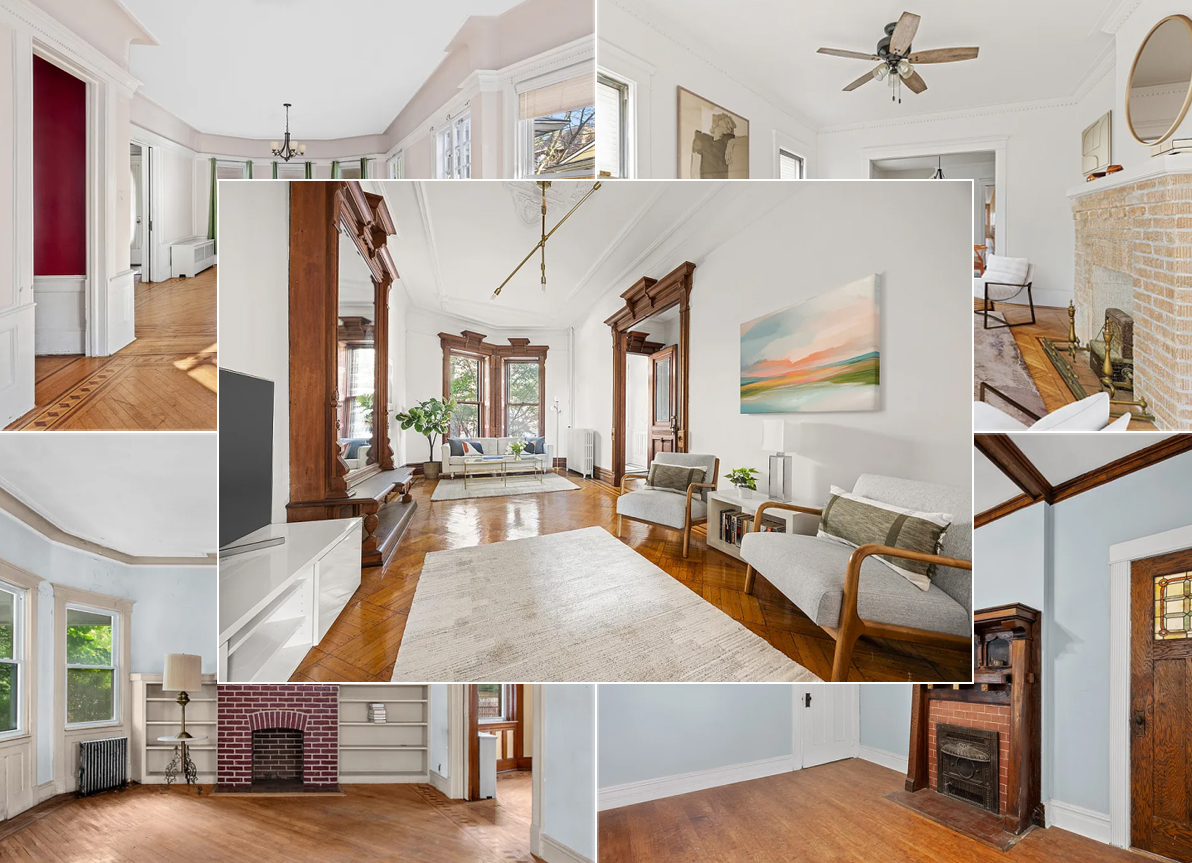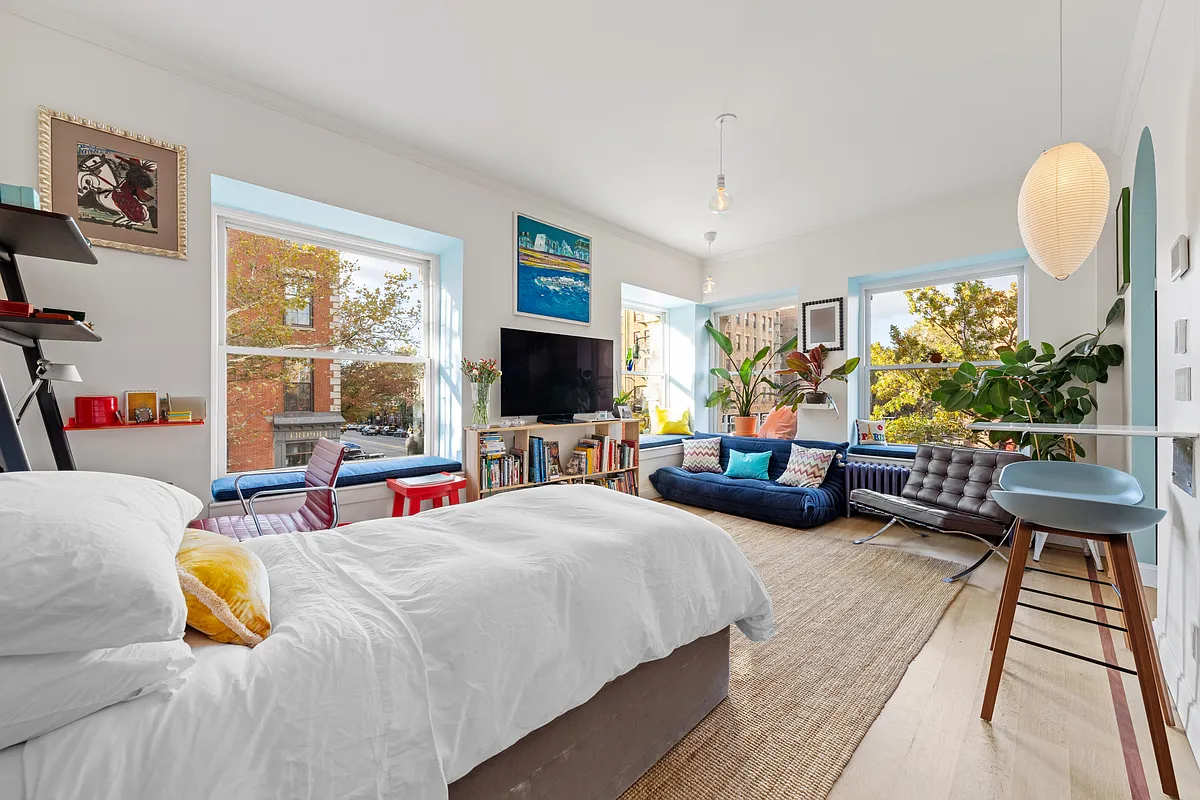Home Ownership Bad for Your Health
Perhaps those who feel desperate to own a home will take a pause after reading this article from Portfolio. “Homeownership is overrated and… it carries a downside as well as an upside,” they write, based on a study of health and happiness and home ownership among women. I find little evidence that homeowners are happier…


Perhaps those who feel desperate to own a home will take a pause after reading this article from Portfolio. “Homeownership is overrated and… it carries a downside as well as an upside,” they write, based on a study of health and happiness and home ownership among women.
I find little evidence that homeowners are happier by any of the following definitions: life satisfaction, overall mood, overall feeling, general moment-to-moment emotions (i.e., affect) and affect at home. Several factors might be at work: homeowners derive more pain (but no more joy) from both their home and their neighborhood. They are also more likely to be 12 pounds heavier, report lower health status and poorer sleep quality. They tend to spend less time on active leisure or with friends. The average homeowner reports less joy from love and relationships. She is also less likely to consider herself to enjoy being with people…
The great satisfaction from ownership, they say, comes when property values increase. Now that that’s less likely, and in many cases values are decreasing, why buy at all, when you can rent and be happy? “In fact, if Americans could be persuaded that rent payments aren’t ‘wasted money’ and that owning often makes less financial sense than renting, I think the rate of homeownership might, happily, drop substantially.”
Homeownership Makes You Fat and Unhappy [Portfolio]
Photo by TheTruthAbout.





Finance Guy –I can’t believe I logged onto Brownstoner and learned something. I can’t compete with your expertise, and why should I; I’d only add that someone with substantial means who truly wants to own might think of the opportunity costs of buying slightly differently. Namely, it’s possible that any paper (or even hard) asset in a deflationary bust is going to zero, or near zero, and so purchasing an asset with as high a consumption value as a house might make sense. In that instance, one would want to buy at the epicenter of urban affluence.
Additionally, I find it highly amusing that when it suits the housing bulls, they talk up fringe neighborhoods, no matter how dodgy, no matter how remote. But when the argument swings the other way, suddenly someone comes out with the truth: viz. the ” walking access to subways, parks, [good] schools, and other amenities are all limited in a dense city like NYC” post at 2:27.
The time to buy is when interest rates are HIGH –then you can re-fi as they slide down. People cheering on the government edict of low rates have no clue what will happen to their equity when rates climb higher. Poof might be the best word.
as a wise poster on Calculated Risk once said (and as echoed by FinanceGuy)- you rent the home or you rent the money.
which is better depends, like any other investment, on whether you are you buying low or high? right now, you are buying high.
another risk the homeowner takes on is the quality of the neighborhood. if you buy in a recently gentrified community, you are making a big bet that it is going to stay that way. now that we are seeing hard economic times, layoffs, etc., and city budget cuts, we will inevitably have increased crime rates. so the renters have the flexibility of moving if their newly gentrified neighborhood goes bust. owners are going to have a much harder time of it.
Finance Guy writes that I “bought [my] house in the ’70s, I gather. That was a good investment.”
Indeed it has turned out to be exactly that. However, I didn’t buy my house as an investment. Most people [including ALL our relatives, all my co-workers, and most of our friends] thought that buying an old house in the city was perverse, at best, and deranged, at worst. Cities, in general, and NYC, in particular [especially after the s**t hit the fan with the City’s finances, a few months after we closed] were thought to be washed up and on an inexorable decline. We were fairly confident that PLG would remain a viable neighborhood and that there would be enough middle class people interested in old houses to, at least, keep us company. I NEVER thought that brownstone Brooklyn would become more desirable than the suburbs [except,of course, for stubborn crazies like me] or that my house would appreciate so much [great, as far as it goes, but I never plan to cash in on it]. Being able to continue living happily in my antique house, surrounded by a few like-minded people, would have been enough. the rest is icing on the cake. To me homeownership, especially historic home ownership, was [and remains] a life style choice, rather than an investment.
I can empathize with that, mopar. My job situation has been unstable the last 7-8 years because I do freelance. And had a lot of old medical bills to pay off. There is no way I feel I could take on a house in any case because of that. It’s one thing when you’re married and your spouse brings in another income- if they do- but single people, especially working for themselves, can find it much harder.
thanks z- but not gratuitously however- I leave that to you.
bailmeout- your comment was pretty derogatory, intentional or not. As for elderly folks losing their homes- read the papers. It’s happening all over the country (Not that the elderly are the only ones), so why you think only elderly renters are suffering, I don’t know.
And yes- the owner vs renter debate goes on all the time and I get sick and tired of it- but it wasn’t renters who came up with the term “bitter renters.” I don’t have a problem with either owners or renters- but implying 80 year old people will get evicted by landlords and have no friends by virtue of their “unhealthy” choice is playing right into it. You made it sound like only 80 year old renters would lose their homes and they would have no resources, because after all- they’re just renters. That’s what bugged me.
Elderly people have a real struggle holding onto their homes for many reasons- especially these days. Don’t make it into a renters issue. It’s great if your parents owned their home and it worked out for them- I have friends who lost their house and it was hellish for them. So much for the equity and financial stability.
Life happens- you can do what you can to protect yourself but Life Happens. Believe me, I know first hand. And I know first hand what it’s like to lose everything because of circumstances you can’t control and someone will still come along and smugly tell you, “you should have done this and you’d be ok.”
dittoburg, I have also lowered my housing costs by owning. When I rented in Carroll Gardens, I paid $1900 a month. When I bought an apt in Jackson Heights, I doubled my space and my monthly carrying costs were $1600 — before the mortgage interest deduction.
I sold and am now living in a rental, also $1600 a month. I am on the verge of buying a townhouse, and my monthly costs will come in around $1600 again. (This includes income from a rental apt.) Also, I will double my space from the rental again, plus have a yard and cellar.
I would be afraid to take on higher costs for a mortgage. What if I lost my job? Also, I need money for shoes.
Mopar:
1. Interest is exactly as gone as rent. Interest is just the rent you pay for money. The only difference is that when you rent a home instead of renting money, the landlord is legally obliged to pay for repairs, taxes, heat, water/sewer and insurance.
2. Whenever you buy a highly leveraged investment you make a lot of money if prices go up. But as Lehman learned to our regret, if prices go down, you lose a lot, too.
When you sell you make money IF prices have gone up. If you bought in SF at the peak, you’ve lost all your equity now. And remember that running a house is quite expensive — it isn’t just the purchase cost and interest.
People who bought 20 or 30 years ago didn’t overpay. There is no reason to think that if you pay 2x fair value you are going to have the same result as people who paid 3/4 fair value and sold into the biggest housing bubble in history. We can all envy the people who by luck or skill made a fortune in real estate in the last generation, but to think that we will get the same result now is just dumb.
3. Retirement costs are never fixed. If you don’t have a lot of money, or live in a country with a civilized retirement system (which would be essentially every advanced democracy but our own), you are screwed. Investing in real estate can be a good way to deal with this problem as an individual, if you have enough money to make the investment in the first place and if you don’t overpay. Otherwise, not.
That would be “their” home was “their” bank.
My parents owned and lucky for them because they didn’t save much cash. There home was there bank. When the house became too much, they sold it for more money than either of them thought they’d ever see. I don’t know if this would be true for someone buying today, but I would rather have fixed housing costs at retirement too. If this can be done by renting, then great.